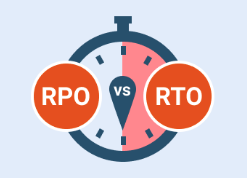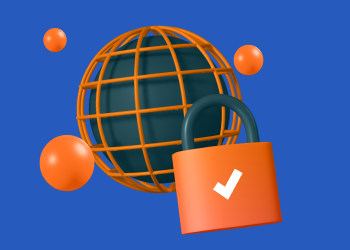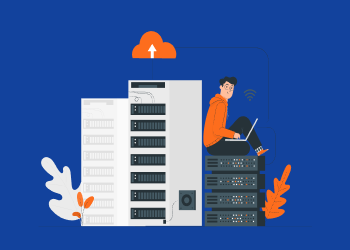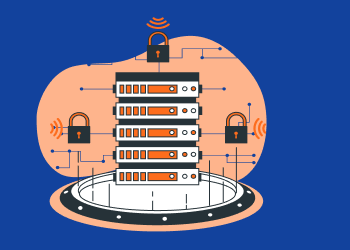This research report discusses the significant reduction in cost and the added data protection that Microsoft 365 backup solutions can bring to an organization through their automation. Case studies, reports, and 2023–2025 evaluations show automated backups save 30% via efficiency, faster restores, and optimized resources. Continue reading
Top Security Threats in Cloud Computing and How to Mitigate Them
Cloud adoption continues to rise across every industry, with one estimate predicting that 90% of enterprises in 2022 will utilize cloud systems at least in some form, and 70% of organizations reporting that they plan to increase their budget for cloud services in the future. It’s no surprise — the cloud allows organizations to increase their technology capabilities and flexibility, often with a better pricing structure. Continue reading
Disaster Recovery Planning Best Practices
A disaster recovery plan is a recorded policy and/or process that is designed to assist an organization in executing recovery processes in response to a disaster to protect business IT infrastructure and, more generally, promote recovery. Continue reading
How Ransomware is Evolving
Over the past two years, it’s been hard to miss the unmistakable rise in ransomware attacks affecting businesses everywhere. Headlines throughout 2021 and into the start of this year were dominated by ransomware attacks underway, or the long-term effects they were causing on businesses, supply chains, and other essential functions. Continue reading
Why MSPs Should Reassess Their Cybersecurity Strategies in 2024
Cyberattacks have dominated headlines over the past year (and more), showing the very real risk that faces organizations of every size and shape today. These attacks have caused massive data loss, crippled critical infrastructure systems, stolen money and hindered hospitals’ ability to provide care, among many other impacts. Continue reading
Are You Simulating Disaster Scenarios Regularly?
Going through a sudden disaster or an emergency is one of the most terrifying things a business can experience, especially if the business is unprepared for it. For this reason, it’s essential for a small or medium business (SMB) to take the necessary precautions not only to implement disaster recovery plans and solutions but also to test them on a regular basis to confirm their effectiveness. Continue reading
The 3-2-1-1-0 Backup Rule: Extend Your Backup Security
The number of cyberattacks is constantly growing; they happen more and more often, and hackers are inventing more and more methods to reach companies’ sensitive data in order to make profit from it. The Gartner experts predict that by 2025, up to 75% of IT companies will become the target of one or more ransomware attacks. Continue reading
Disaster Recovery Challenges for SMBs
Some say that disaster recovery is not that different from backup. Others try to implement a "set it and forget it" backup and disaster recovery solution. And both of these positions are a great way to lose corporate data. Why? Continue reading
Immutable Data Backups Explained and How It Works in MSP360
Introduction to Immutable Backups
Immutable data backups are a crucial component of data protection strategies. They are designed to be unmodifiable, ensuring that your data remains safe from ransomware attacks, accidental deletions, and other threats. In this video, we'll explore the concept of data immutability and how it can safeguard your valuable information. You'll also learn how MSP360's immutable data backups and remote monitoring management solutions can provide you with peace of mind.
Immutable data backups are crucial for any given organisation's data protection strategy. When you back up your data, one of the worst scenarios imaginable is losing your data due to ransomware or another type of cyberattack. Data protection is a burning issue right now due to these attacks, and the best way to keep your data safe is to use the most current cybersecurity technologies, such as immutable data backups.
9 Worst Cybersecurity Practices
At least once in your life, you've been cyberpwned. Also, chances are that you know exactly what triggered the successful attack. Continue reading
How to Protect Backups from Ransomware: Full Guide
Nowadays, ransomware attacks aim for essential data assets, such as production databases and backups. If your backups are encrypted by the malefactors, you have only two choices left: to pay the ransom or to forget about your data. Thankfully, there are a range of tactics to protect your backups from ransomware attacks. Continue reading
Meteor Wiper Malware: How a Robust Backup Strategy Can Help
You’ve heard of ransomware, which is capable of rapidly encrypting and disabling files in a bid to force victims to pay exorbitant ransom fees. Now, there is a new threat to your data: wiper malware. Continue reading
















